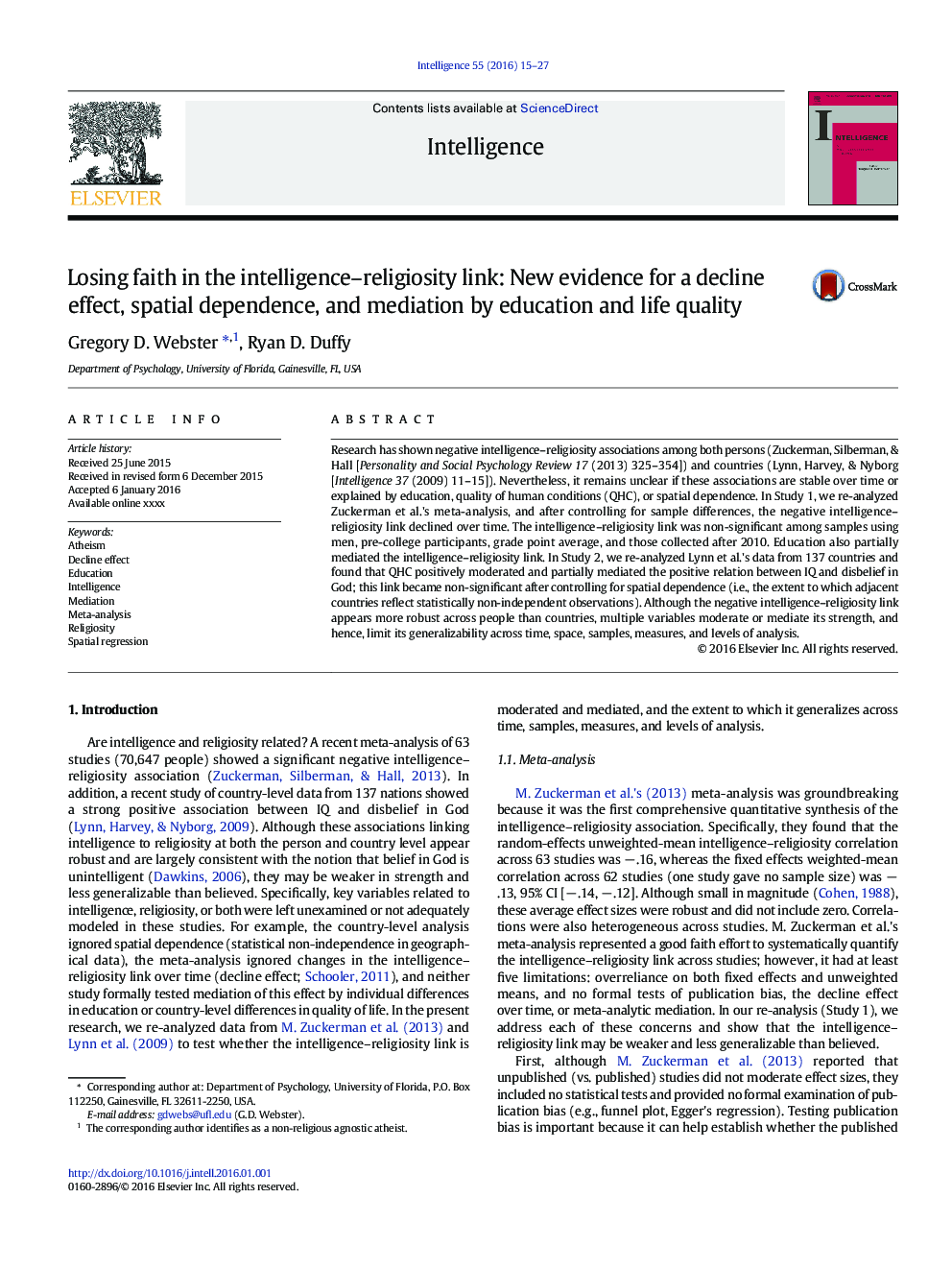| کد مقاله | کد نشریه | سال انتشار | مقاله انگلیسی | نسخه تمام متن |
|---|---|---|---|---|
| 7293337 | 1474261 | 2016 | 13 صفحه PDF | دانلود رایگان |
عنوان انگلیسی مقاله ISI
Losing faith in the intelligence-religiosity link: New evidence for a decline effect, spatial dependence, and mediation by education and life quality
ترجمه فارسی عنوان
از دست دادن اعتقاد به پیوند اطلاعاتی و مذهبی: شواهد جدید برای تأثیر کاهش، وابستگی فضایی و میانجیگری از طریق آموزش و کیفیت زندگی
دانلود مقاله + سفارش ترجمه
دانلود مقاله ISI انگلیسی
رایگان برای ایرانیان
کلمات کلیدی
بی تفاوتی، اثر کاهش یافته، تحصیلات، هوش واسطه متاآنالیز، مذهب، رگرسیون فضایی،
موضوعات مرتبط
علوم انسانی و اجتماعی
روانشناسی
روانشناسی تجربی و شناختی
چکیده انگلیسی
Research has shown negative intelligence-religiosity associations among both persons (Zuckerman, Silberman, & Hall [Personality and Social Psychology Review 17 (2013) 325-354]) and countries (Lynn, Harvey, & Nyborg [Intelligence 37 (2009) 11-15]). Nevertheless, it remains unclear if these associations are stable over time or explained by education, quality of human conditions (QHC), or spatial dependence. In Study 1, we re-analyzed Zuckerman et al.'s meta-analysis, and after controlling for sample differences, the negative intelligence-religiosity link declined over time. The intelligence-religiosity link was non-significant among samples using men, pre-college participants, grade point average, and those collected after 2010. Education also partially mediated the intelligence-religiosity link. In Study 2, we re-analyzed Lynn et al.'s data from 137 countries and found that QHC positively moderated and partially mediated the positive relation between IQ and disbelief in God; this link became non-significant after controlling for spatial dependence (i.e., the extent to which adjacent countries reflect statistically non-independent observations). Although the negative intelligence-religiosity link appears more robust across people than countries, multiple variables moderate or mediate its strength, and hence, limit its generalizability across time, space, samples, measures, and levels of analysis.
ناشر
Database: Elsevier - ScienceDirect (ساینس دایرکت)
Journal: Intelligence - Volume 55, MarchâApril 2016, Pages 15-27
Journal: Intelligence - Volume 55, MarchâApril 2016, Pages 15-27
نویسندگان
Gregory D. Webster, Ryan D. Duffy,
